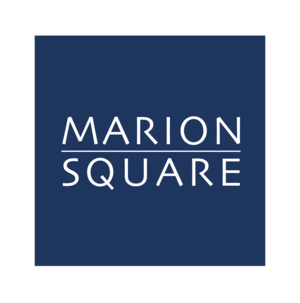Quantum Momentum in Washington: Why Now is the Time for Quantum Tech Companies to Engage with the U.S. Government
Author: Harvey Morrison
At Marion Square, we closely monitor developments in emerging technologies and quantum is quickly becoming one of the most strategically significant areas in the federal market. Between DARPA’s new benchmarking program, surging agency budgets, and bipartisan legislative support, the U.S. Government is laying down the foundation for a decade of quantum investment. For companies in this space, now is the time to evaluate public sector engagement strategies.
A Decade of Growing Investment in Quantum
Since 2018, federal quantum funding has grown steadily year-over-year from just over $400 million in FY19 to nearly $1 billion in FY23. This surge is anchored by the National Quantum Initiative Act (NQIA), which authorized over $1.2 billion in its first phase to support national labs, academia, and private-sector collaboration.
In late 2024, a $2.7 billion reauthorization was introduced to extend this work, with an even sharper focus on applications, public-private partnerships, and national security.
DOE and NIST: Major Players in Quantum Advancement
The Department of Energy (DOE) is significantly expanding its quantum research efforts. In January 2025, DOE announced $625 million in funding to support National Quantum Information Science Research Centers. Additionally, the DOE Quantum Leadership Act of 2025 proposes over $2.5 billion in funding over five years to bolster quantum research and development programs.
Simultaneously, the National Institute of Standards and Technology (NIST) is enhancing its quantum initiatives. The FY 2025 budget request includes $311.5 million to address critical infrastructure needs, with a focus on modernizing facilities that support quantum information science research.
DARPA’s Quantum Benchmarking Initiative: Toward Utility-Scale Systems
In April 2025, DARPA launched the Quantum Benchmarking Initiative, selecting 15 companies to evaluate and scale next-generation quantum computing architectures. The goal is to define utility-scale quantum systems that can meet national defense requirements by 2033.
This multi-year effort spans superconducting, trapped-ion, photonic, and neutral atom modalities with benchmarks tied to real-world mission performance. It’s a major opportunity for companies with scalable platforms, benchmarking tools, and software optimization capabilities to align directly with DoD priorities.
Congressional Action: Funding the Next Wave
Recent bipartisan legislation reinforces this momentum:
The Defense Quantum Acceleration Act proposes $20 million annually through FY2029 to scale DoD adoption, establish a Quantum Center of Excellence, and appoint a Principal Quantum Advisor.
The Quantum Sandbox for Near-Term Applications Act would fund hybrid quantum-classical pilot programs via public-private partnerships.
The Advancing Quantum Manufacturing Act aims to boost domestic quantum production and coordinate efforts across DOE and NSF.
These bills mark a shift from basic research toward tangible applications, infrastructure, and commercial integration.
Why This Matters Now
The U.S. Government is no longer treating quantum as exploratory science it’s treating it as strategic infrastructure. This opens doors for companies across the stack hardware, control, software, benchmarking, and hybrid orchestration to engage with a buyer that funds long-term, high impact technology.
If your company is building core quantum capabilities, now is the time to:
Align with DARPA’s roadmap and technical benchmarks
Explore public-private pilots through new legislative programs
Position yourself for FY26 funding cycles and beyond
Act Now: Engage While the Window is Wide Open
Federal interest in quantum isn’t peaking it’s expanding. Between DARPA’s hands on prototyping and Congress’s financial backing, the U.S. Government is assembling a framework to transition quantum from lab to mission.
Engagement now means more than funding it means influence, market readiness, and long-term strategic positioning.
About Marion Square
Marion Square is a strategic advisory firm that helps deep tech and emerging technology companies succeed in the U.S. public sector. We specialize in aligning companies with federal priorities, identifying the right contracting pathways, and building go-to-market strategies that lead to long-term government partnerships.
If you're exploring the public sector opportunity for your quantum offering, we're here to help you navigate it.

